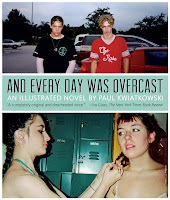This week's picks come from Johanna Ingalls,
Managing Editor at Akashic Books
The Night of the Rambler by Montague Kobbé
(forthcoming 9/3/13)
What it’s About
Loosely based on the historical facts surrounding the Anguilla Revolution of 1967, The Night of the Rambler unfolds across the fifteen hours that lapse between the moment when the Anguillan “rebels” board the motorboat that will take them across the strait to St. Kitts, and the break of dawn the following day, when it becomes obvious that the unaccomplished mission will have to be aborted. The novel consciously moves away from the “historical” category, purposely altering at will the sequence of “facts” narrated, collating fully fictional episodes with vaguely accurate anecdotes and replacing the protagonists with fictional characters. At turns highly dramatic and hilarious, Kobbé brings deep honesty to the often-unexamined righteousness of revolution.Why You Should Read It
Kobbé brings an exciting new voice to the story of the 1967 Anguilla Revolution in his debut novel. This book is funny, poignant, entertaining, and an all-around delight. It’s a great book about the nature of revolutions, which is particularly relevant given recent events in Egypt, Turkey, Iran, etc. It’s historical fiction and alternate reality in the best way—as Kobbé says in his preface, The Night of the Rambler is “a fictionalized and utterly false account of the events that most definitely did not happen on June 9–10, 1967.” Work of fiction or not, this book illuminates the common nature of revolutions great and small.
As Flies to Whatless Boys by Robert Antoni
(forthcoming 9/3/13)
What it’s About
Willy, the narrator of As Flies to Whatless Boys, is traveling from London to Trinidad with “inventor” John Adolphus Etzler in the mid-nineteenth century. Etzler has convinced English working-class families (such as Willy’s) that he has invented machines that use the forces of Mother Nature to ensure no one will have to work, allowing for the creation of a tropical utopian society in the Caribbean. While en route to Trinidad, Willy falls in love with Marguerite Whitechurch, a gentry girl whose lack of vocal cords force her to write to Willy in order to communicate with him. Marguerite and Willy’s love story is interrupted by the ship’s arrival at Port of Spain, where Etzler—who is revealed as a complete charlatan—abandons the group, and it becomes clear that his machines don’t work at all. As the majority of the ship’s passengers—including Willy’s father—are stricken with the “Black Vomit,” Willy must decide whether to return to England with the girl he loves, or to stay in Trinidad with those who he has met along the way.
Why You Should Read It
Robert Antoni has been called the James Joyce of the Caribbean, and this captivating novel proves that he has earned that title. Antoni was named a Guggenheim Fellow in 2010 for his work on As Flies to Whatless Boys, and I’m thrilled with this final version of the book. Not only is it an engrossing story, but the book is also aesthetically captivating—Antoni has incorporated a full-color map of Port of Spain, reproductions of fictional newspaper articles, symbols, drawings, and an appendix that points to exclusive online video content. It’s easy to lose yourself within As Flies to Whatless Boys, and that’s entirely because of Antoni’s voice and his vision for this novel.
We Do!: American Leaders Who Believe in Marriage Equality, edited by Jennifer Baumgardner and Madeline M. Kunin
(forthcoming 10/1/13)
What it’s About
We Do! demonstrates, through speeches, interviews, and commentary, the encouraging story of American acceptance of gay marriage and the roles that politicians—gay and straight—have played in that history. This movement, like all civil rights movements, began with individuals telling the truth about who they are to a world that doesn’t accept them. It ends with an entire generation of young people who reject blatant civil rights discrimination. From Supervisor Harvey Milk articulating in 1978 why gay people in all fields must be out and visible (“For invisible, we remain in limbo—a myth, a person with no parents, no brothers, no sisters, no friends who are straight, no important positions in employment”); to Governor Andrew Cuomo blinking back tears as he discusses his pride in making gay marriage a reality in New York in 2011; to President Obama’s unprecedented support; and the courage of many other American politicians—We Do! triumphantly chronicles this recent chapter of our history.
Why You Should Read It
The Supreme Court’s recent decision to declare the Defense of Marriage Act unconstitutional was a huge success for marriage equality activists across the country, and We Do! both documents and celebrates American politicians who have voiced their support for this latest fight for civil rights. Madeline M. Kunin—former governor of Vermont, former deputy secretary of education, and former ambassador to Switzerland—joins Jennifer Baumgardner, award-winning author and activist, to collect these speeches and interviews into one inspiring volume.
~~~~~~~~~~~~~~~~~~~~~~~~~~~~~~~~~~~~~~~~~~~~~~~~~~
Johanna Ingalls is the managing editor at Akashic Books where she has worked for over a decade since being rescued from the music industry by Akashic publisher Johnny Temple. A graduate of Barnard College, she currently lives in Brooklyn, NY with her husband and their foolishly oversized animals—an Irish Wolfhound named Beckett and a twenty-pound cat named Boutros Boutros-Ghali.


















.jpg)













